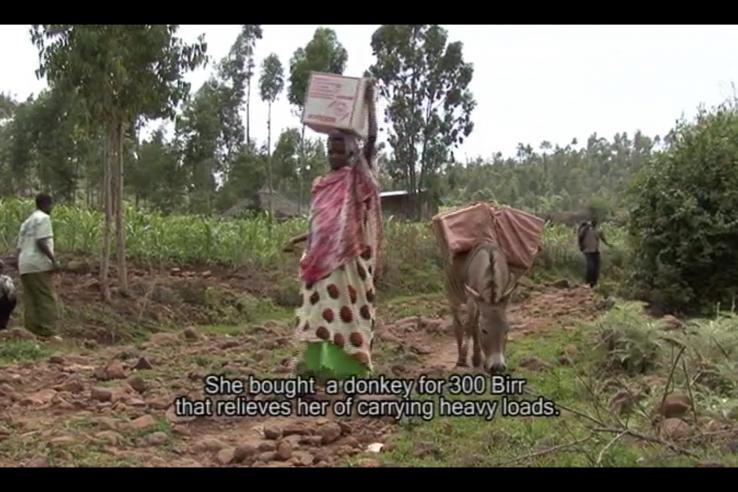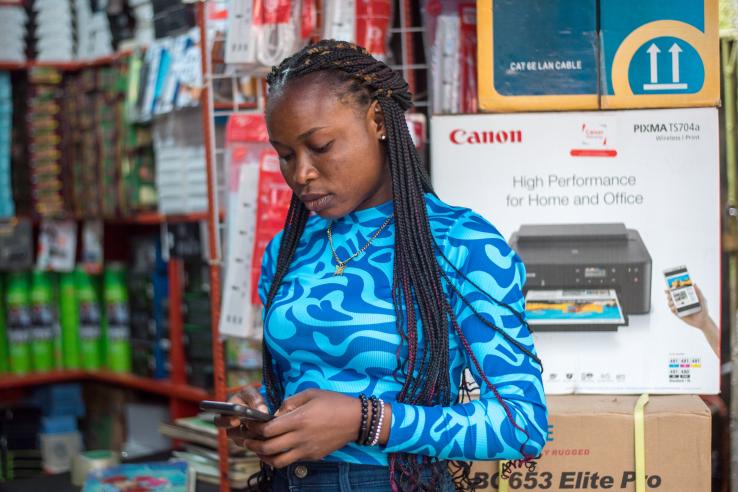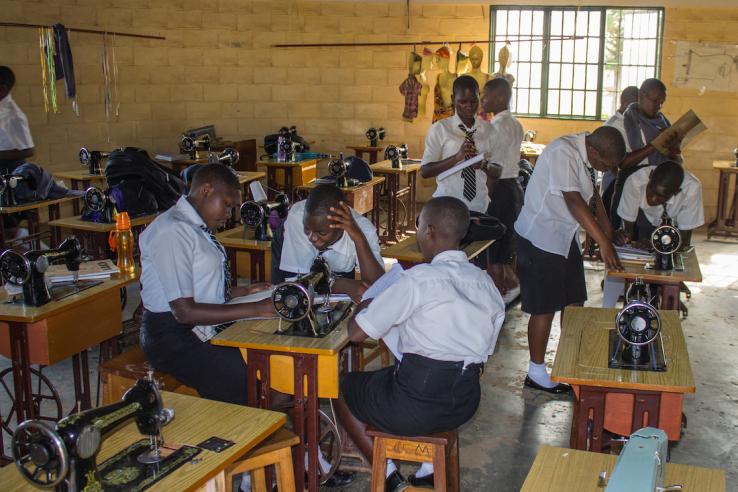Displaying 1261 - 1275 of 1302
Evaluation
Researchers conducted a randomized evaluation to test disbursing microfinance loans through digital accounts on business outcomes in Uganda. Women who received their loan through a digital account experienced higher business capital and profits compared to those who received their loans via cash.
Evaluation
In rural Mexico, researchers examined whether conditional cash transfers (CCTs) protect families against income shocks and promote investment in children's education.
Evaluation
Researchers conducted a randomized evaluation of the VIP:Voice, a digital election participation platform, to measure the impact of information and communications technologies on individuals’ political participation. Via the platform, researchers interacted with nearly 100,000 citizens, recruited citizen monitors in 38 percent of the wards of South Africa and deployed 347 citizen monitors to polling places. However, around 50 percent of participants dropped out at each subsequent, and more time-intensive, form of engagement requested via the platform.
Evaluation
Researchers studied a policy reform in Boston, Massachusetts, that allowed effective charter schools to replicate their school models at new locations. Results showed that charter schools reproduced their effectiveness at new campuses by following similar sets of standardized protocols, demonstrating the feasibility of charter school replication.
Evaluation
Workers without social connections may be disadvantaged in the labor market because employers favor applicants who have been referred. Researchers tested three interventions in an online labor market to investigate why employers are more likely to hire referred workers. First, referrals provide a signal that workers will perform well and have lower turnover. Referred workers outperformed and had lower churn than non-referred workers with the same observable characteristics. This is true even at companies to which they were not referred. Second, being referred makes workers more productive. Referred workers were particularly productive when they work with their referrers. However, workers’ concerns about their reputation with their referrer or their referrer’s position at the firm did not lead workers to exert more effort.
Evaluation
Researchers partnered with the Egyptian Center for Women’s Rights to evaluate the effect of educational social media and TV campaigns on women’s attitudes and behaviors around responding to GBV and IPV. The social media campaign increased women’s knowledge and use of resources, but had no impact on their underlying attitudes towards gender equality or gender-based violence.
Evaluation
Researchers conducted a randomized evaluation to test whether exposing people to a documentary featuring potential role models impacted parents’ educational aspirations for their children or their actual investments in education, and if these impacts varied by gender. Exposing families to the documentary increased parental aspirations for educational attainment as well as investments in education, but it did not close the gender gap for either.
Evaluation
In Ghana, researchers worked with a bank that provides services to low-income customers with limited access to mainstream banking to evaluate the impact of sending pre-recorded informational voice calls and text messages on the adoption of mobile banking. Clients that received messages encouraging mobile banking were more likely to use mobile banking services and repay loans on time, while clients that received messages encouraging savings only had no measurable change in behavior.
Evaluation
A large charitable organization in the United States conducted a series of direct mail appeals for donations using different identity primes in 2009-2010. Researchers found that priming a potential donor’s identity as either a previous donor to charity or as a member of their local community generated more donations.
Evaluation
Researchers evaluated the impact of financial incentives, public health video messages, and access to a vaccine scheduling link on Covid-19 vaccination intentions and vaccine take-up in the United States. None of the interventions led to increases in vaccine take-up after thirty days. In a subsequent study, researchers found that personal reminder messages led to increases in booster vaccination rates while monetary incentives had no additional impact.
Evaluation
In Uganda, researchers introduced a mentoring program to evaluate the impact of interactions between young, successful vocational training graduates and current vocational training students on their employment status and earnings. Students who received mentoring were more likely to be working three months after graduating, and had higher earnings a year after graduating.
Evaluation
Researchers are conducting a randomized evaluations to test the impact of different types of public health messaging on the practice of social distancing.
Evaluation
Technology adoption often requires investments over time. As farmers realize new information about the costs and benefits of investments, they may abandon the newly adopted technology shortly after. Researchers partnered with the non-governmental organization Shared Value Africa and Dunavant Cotton Ltd to investigate the effects of subsidies and follow-through rewards on the adoption of an agroforestry tree species.
Evaluation
Can facilitating relationships between small- and medium-sized businesses help them grow? In Jiangxi Province, China, researchers conducted a randomized evaluation to study the impact of business relationships on firm performance. Monthly meetings among firms increased sales, profits, and other business outcomes, mainly by facilitating learning and partnership development.
Evaluation
Using a technology-based math curriculum, researchers evaluated the impact of different incentive types—rewarding continuous effort in the classroom versus rewarding test performance—on student learning. Results indicate that effort-based incentives can be a more effective and cost-effective way of improving learning than incentives focused on test scores.











